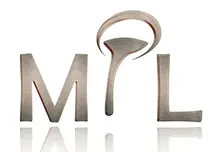
One of the primary uses of EDTA is in the pharmaceutical industry, where it is used as a preservative in various medications and drugs. EDTA helps to prevent the degradation of active ingredients by chelating metal ions that can catalyze oxidation reactions. This helps to extend the shelf life of pharmaceutical products and maintain their potency.
Release time
2024-08-26
DMT is an important intermediate chemical in the production of PET, which is a versatile and widely used material in the packaging industry due to its excellent barrier properties, strength, and recyclability. The production of DMT involves several key steps, including the esterification of terephthalic acid with methanol, followed by the purification of the resulting dimethyl terephthalate through crystallization and distillation processes.
Release time
2024-08-05
Chemically, p-phthalic acid is classified as a dicarboxylic acid, with two carboxylic acid groups attached to a benzene ring. It is an isomer of o-phthalic acid and m-phthalic acid, which have the carboxylic acid groups located at different positions on the benzene ring.
Release time
2024-07-22
One of the main characteristics of cellulose triacetate is its high durability and resistance to heat, chemicals, and moisture. This makes it an ideal material for use in various industrial and consumer products, such as plastic films, photographic films, and textiles.
Release time
2024-07-05
Polyoxyethylene stearate is a type of surfactant commonly used in the formulation of various personal care and cosmetic products. It is derived from the reaction of stearic acid, a fatty acid found in animal and vegetable fats, with ethylene oxide, a compound used in the production of various chemicals.
Release time
2024-06-21
The difference between fertilizer and chemical fertilizer
The main difference between fertilizer and chemical fertilizer is their source and composition. Fertilizer is natural and organic, while chemical fertilizers are synthetic and manufactured. While both can improve soil fertility and promote plant growth, organic fertilizers are often preferred for their environmentally friendly and sustainable properties. Chemical fertilizers, on the other hand, may have negative impacts on soil health and the environment if overused.
Release time
2024-05-20
How long is the effectiveness period of fertilizer?
To ensure optimal plant growth and health, it is recommended to regularly monitor the nutrient levels in the soil and adjust fertilizer applications accordingly. Soil testing can help determine the nutrient deficiencies in the soil and guide the selection of a fertilizer that will best meet the needs of the plants. By following a regular fertilization schedule and monitoring soil health, gardeners and farmers can ensure that their plants receive the nutrients they need to thrive throughout the growing season.
Release time
2024-05-06
It is important to carefully read and follow the instructions on fertilizer labels to ensure that the correct type and amount of nutrients are applied to plants. Using the right fertilizer ingredients in the proper amounts can help plants thrive and produce healthy yields.
Release time
2024-04-25
Types and functions of fertilizers
Fertilizers play a crucial role in promoting healthy plant growth and improving soil fertility. By understanding the different types of fertilizers and their functions, gardeners and farmers can choose the best fertilizers for their specific needs and achieve successful results in their gardening or agricultural endeavors.
Release time
2024-04-10

